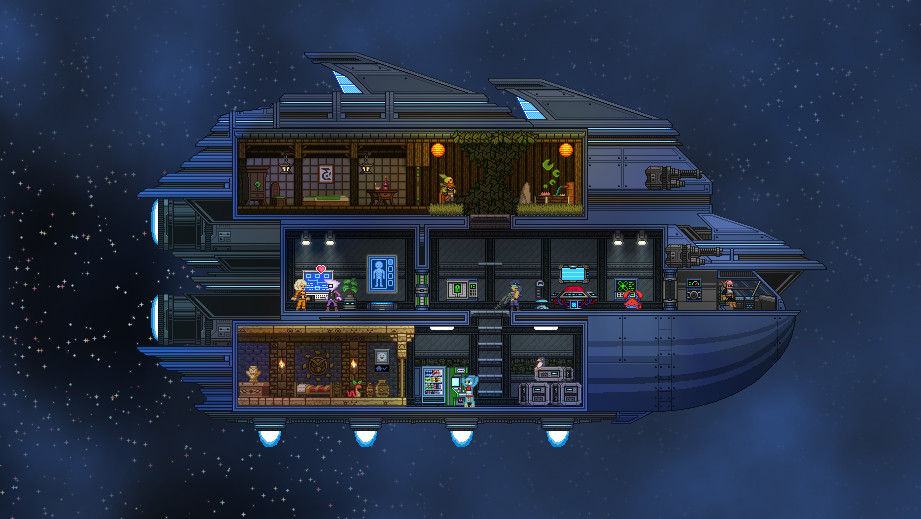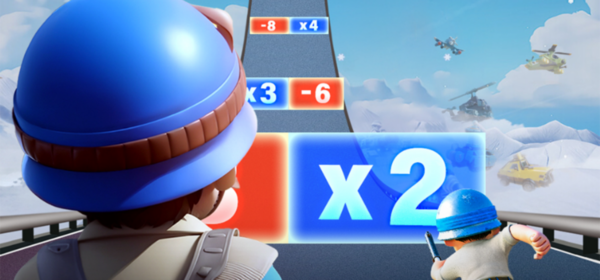How to impregnate the game to the publisher: "captain's" tips from Chucklefish
The British company Chucklefish, which accounts for the development of Starbound and the publication of Stardew Valley, has published a guide on pitching games. It contains tips on how to prepare for the presentation of the project and what publishers pay attention to. We share the main material.
Starbound Preparing for the pitch
Understand what kind of game you are making
The developer should have a clear vision of the future game. It is not necessary to go into every detail during the pitch and, for example, explain all the details of the design of the combat system (although the key points are definitely worth highlighting).
The main thing is to imagine how much the development will cost and how much time it will take. This cannot be achieved without understanding which mechanics will get into the game, and how exactly the gamer will use them.
In addition, the deeper the concept of the game is worked out, the easier it is for the developer to convey it to the publisher and answer any questions that arise.
Decide on what you need to create a game
It is also worth considering the scale of the game. How many levels will there be? How many hours will it take to complete?
Here it is desirable to find out what is possible to do with the help of your own resources or the estimated budget from the publisher. At the same time, it is necessary to understand how many people will be needed to implement the idea.
The next step is to prescribe a realistic work schedule. Chucklefis advises talking to friends, other developers, or doing research first. This will help you more accurately estimate how long it will take to create a game.
Learn how to talk about the game in an interesting way
The British publishing house believes that it is necessary to present the game in such a way as to delight the publisher. Moreover, it is worth submitting the project idea as briefly as possible.
As an example, they give descriptions of Wargroove:
Embark on the battlefield of Wargroove, a strategy for 4 players! Choose a commander and start a turn-based battle. Create and share maps, cutscenes and campaigns!
Chucklefish advises you to tell your friends and family about your game, as well as experiment with serving. Over time, you will be able to find the very description of the game that the audience will really like.
When to send a presentation?
All publishers are different, writes Chucklefis. Some are ready to take up the game when it is almost ready. Others — several years before the release. For the most part, developers want to sign a contract with a publisher six months before the release of the game. Ideally, Chucklefis itself would prefer to do this a year before the launch, so that there would be time to study the audience, build up the community and vishlist.
Not all publishers are ready to take the already announced project. But many people rate this as a plus when working with a developer. The fact is that by the reaction of the audience to the announcement, publishers see in advance how interesting the game is to gamers.
Things the publisher is looking at
Chucklefis highlights four key points that publishers pay attention to.
- “The hook.” Why would people play this game? What is new and fresh that the developer brings to the market? The simpler this “hook” is described, the higher the chances of attracting the attention of publishers.
- Illustrative examples. It is advisable to add as much content as possible to the pitch, which gives an understanding of the appearance of the game: videos, gifs, concept art. If there is none of this yet, it is worth showing at least visual effects similar to those that will later appear in the game.
- Demo version/vertical slice. An important point, especially for novice teams. The demo will not only prove that they can create a game. Since creating a prototype requires a lot of effort and time, the developers will at least show that they really want to release the game. Chucklefis also notes that there is no need to be afraid to make mistakes here. On the contrary, in the future, against their background, publishers will be able to notice progress in development.
- Adequate budget. Asking for money is not easy, but modesty is out of place here. When a developer requests an obviously insufficient amount, this may lead the publisher to think that he does not understand how much money will be spent on creating a game. It is necessary to estimate what the salaries of developers will be, as well as how much it will cost to maintain the office. At the same time, the budget should be supported by a well-thought-out production plan.

